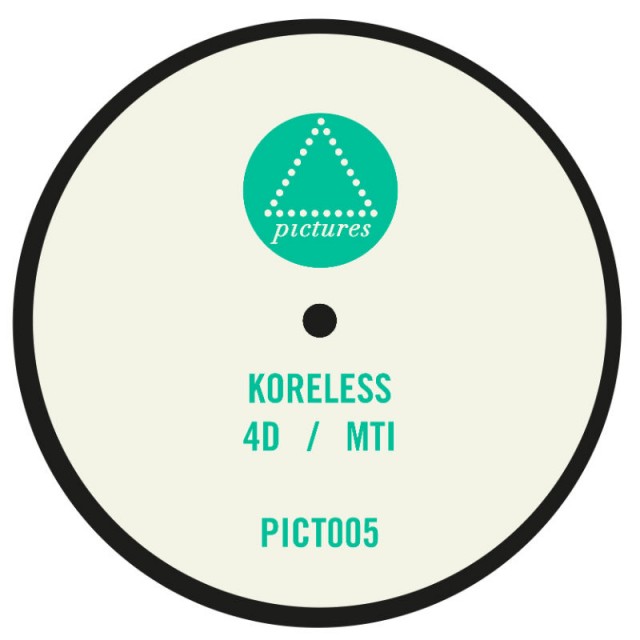Thursday, April 21, 2011
Koreless 4D/MTI
19 Year old Glaswegian Lewis Roberts aka. Koreless, heavily backed by the likes of none other than Gilles Peterson has released a killer EP 4D/MTI. Those who listen to Jamie xx's mixes might recognise MTI from his Benji B radio show mix, if anything a seal of quality from a man who is so hot right now. Koreless plays with vocal samples on both tracks, MTI, though being a B side in my opinion is actually the stronger track with an awesome drop and easily danceable beat to boot.
This one is dedicated to those working late at night as I've been doing myself for the last few weeks now and probably for another few weeks to come.
Monday, April 4, 2011
Jeff Mills' classic live mix gets the review treatment for music class
Jeff Mills
Live at the Liquid Room, Tokyo
It goes without saying that the genre of techno often falls prey to crude and primitive labels, awkwardly lumped with everything from house music to synth-pop. Hordes of perverse, ecstatic Deutsche flailing about like the village gimp in a dimly-lit room for days on end, riding substance-induced benders; or are we too good for these prehistoric stereotypes?
Cue Jeff Mills. Riding atop a career of almost 25 years, he helped usher in the second wave of Detroit techno and electro in the early ‘90s, while still actively a part of (then) underground techno collective Underground Resistance (UR). Characterized by their militant black dress style and endless mysterious monikers, UR married Detroit ’s industrial elements with its rich musical history, resulting in what some term as techno-funk, and more commonly known as Detroit Tokyo
Separated into three distinctly different segments, Live at the Liquid Room is ultimately a showcase of Jeff’s constant desire to push musical boundaries. What might normally be misconstrued by the local cynic as mindless, repetitive beats is transformed into an organic and visceral journey, unrestrained and unrelenting. The decks are Mills’ vehicles of expression; they are an extension of his creativity and concept.
After treating his audience to 30 seconds of foreboding synth strains, our host launches into the first of what is to be 38 tracks in total, culled from what was originally a 3 hour set. What follows is ten minutes of somewhat clunky mixing; as if Mills were conducting a bedroom experiment, randomly scratching and skipping, and matching beats awkwardly.
Off-putting? Hardly. In doing so, Mills establishes the perfect canvas upon which to apply his frenetic and almost-impatient mixing, akin to an irritable child unsatisfied with its slew of new toys. There is a primal urgency to the beats as they tumble through and over one another, never settling as Mills flexes his technical ability over 3 turntables. One would struggle to find a track that overcomes the 2-minute mark; rather, we are left with interwoven fragments, subjected to paranoid skipping, rewinding and cutting. At times seeming on the verge of collapse, it’s all brought back together, adding to the occasionally audible sense of excitement from the crowd. Amidst the chaos, though, he does find time to drop DJ Funk’s ghettotech classic Work That Body, Derrick May’s Detroit-staple Strings of Life, as well as his own techno-monsters The Bells, and the dramatic and deliciously barbaric Strings of Life-rework, Changes of Life.
As a recording, it is barely manipulated, avoiding the tendency of many DJs to simply release mixes recorded ‘live’ in the studio. Muffled crowd noise, needle-drops, and some obvious (though not detrimental) muck-ups all contribute positively to the intensity of the overall experience. At its best, Detroit
What most defines this recording, and mix, though, is its truth-to-form, its ability to truly convey the essence of a live performance, where many others have failed. Even as an external audience, we feel a sense of being there. As much as Mills continues to purport an intellectual substance in his work (what he and others describe as Afro-Futurism), Mills’ most attractive trait is his ability to satisfy our cerebral needs, as active beings. The mix justifies this in standing as greater than the sum of its parts, of which there are dozens. The instinctive and sometimes abrupt track changes somewhat paradoxically drew me closer to the work as a listener than away from it, as my speakers churn out lines upon lines of throbbing bass, an addiction for which there is no antidote.
Even today Jeff Mills is a diminutive figure, relatively softly-spoken as per many of his peers, but his transformation into a techno monolith is transcribed within the revered Live at the Liquid Room, Tokyo Detroit
edit: Jesus Christ, Word formatting fails to transfer willingly onto blogger posts.
Subscribe to:
Posts (Atom)

